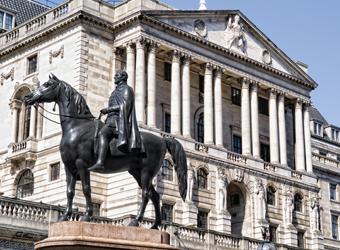The unrest in Hong Kong has led to as much as $5 billion of capital outflow from investment funds in the Asian financial hub since April, the Bank of England said.
The flight of capital, which accounted for nearly 1.25% of the region’s GDP, began after the city’s government pushed for a bill that would allow extradition to Mainland China, according to the central bank’s Financial Stability Report released on Monday.
As protests against the bill intensified and led to violent clashes, retail sales plunged, pushing the city into its first recession in a decade.
These political tensions pose risks, given Hong Kong’s position as a major financial center,” the report said.
The BoE monitors Hong Kong closely because UK banks such as HSBC and Standard Chartered are also the leading banks in Hong Kong.
The banks have passed the BoE’s stress test, which modeled a fall of almost 8% in Hong Kong’s GDP and a slump in property prices by more than half.
Analysts at Goldman Sachs said in October that about $4 billion of deposits might have left Hong Kong for Singapore between June and August.
However, the Hong Kong Monetary Authority, the central bank in the Chinese-ruled territory, has repeatedly said there are no apparent signs of significant capital outflows from the city.


